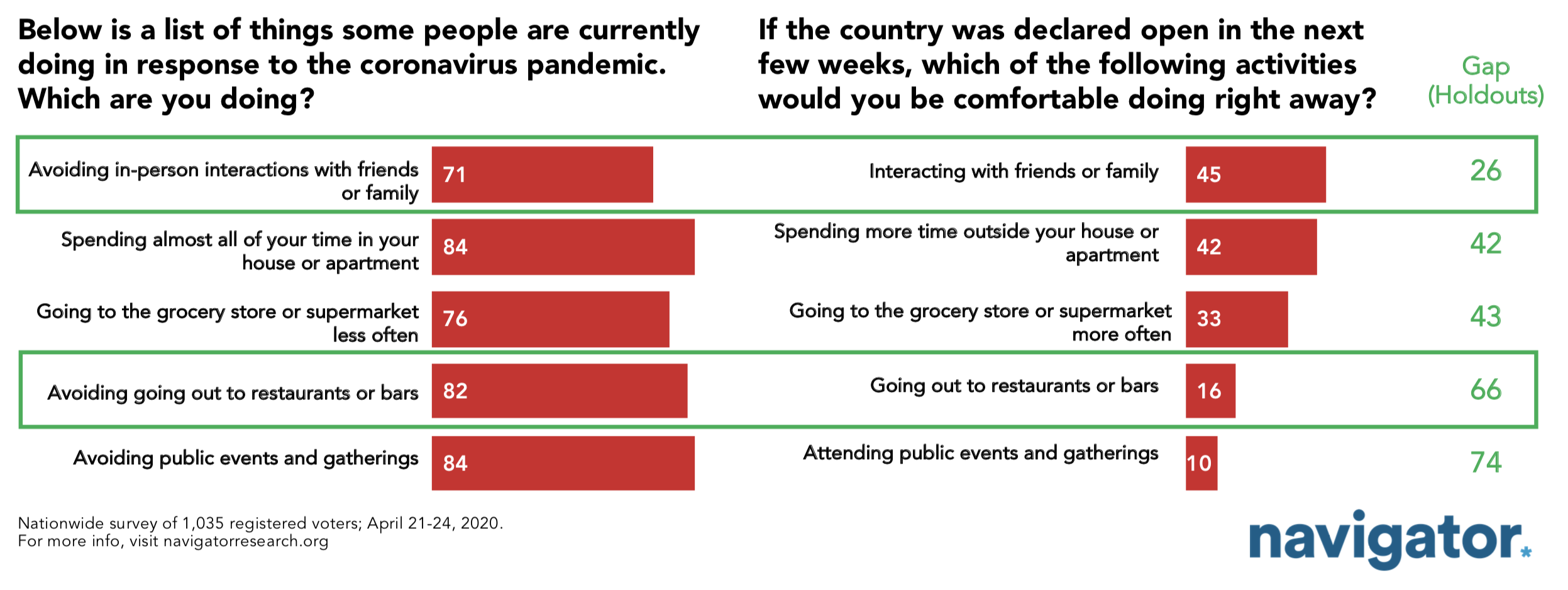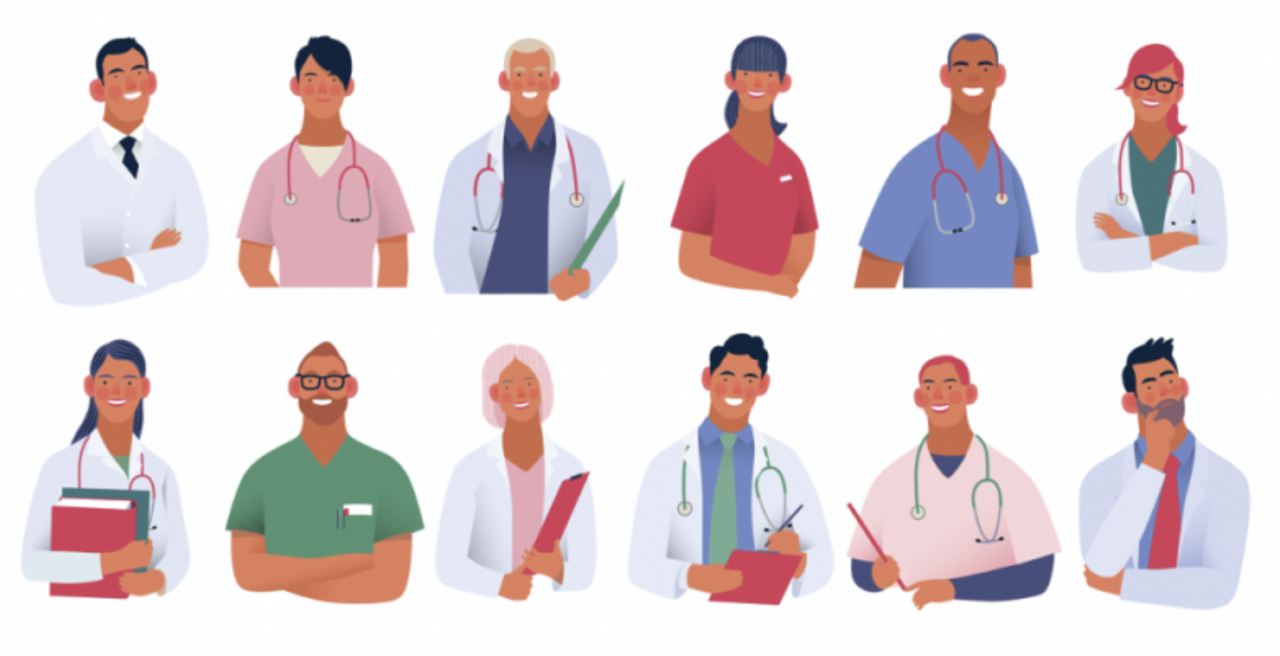Welcome to NAVIGATOR – a project designed to better understand the American public’s views on issues of the day and help advocates, elected officials, and other interested parties understand the language, imagery, and messaging needed to make and win key policy arguments.
This is a dynamic time, and as a result, Navigator will transition to a daily tracking poll on the coronavirus crisis. For the foreseeable future, we will be tracking public opinion every weekday, releasing on a Tuesday-Saturday schedule. In addition, future editions will provide more messaging guidance to the progressive community.
This edition of our daily tracking release features findings from a national online survey of 1,035 registered voters conducted April 21-April 24, 2020.
Key takeaways
- State and local governments remain more trusted than Trump, as his job approval continues to fall.
- The majority still believes the worst is yet to come and there’s increasing concern social distancing will end too soon.
- If the country reopens soon, Americans are more comfortable interacting with friends than going to restaurants, bars, and large gatherings.
Trump’s Net Job Approval Hits New Low in Daily Tracking
Donald Trump’s job approval rating has hit a new low in our daily tracking and is now worse than his average job approval rating from October 2019 – February 2020.
- Trump’s approval rating on his handling of the coronavirus pandemic remains negative (44% approve/52% disapprove).
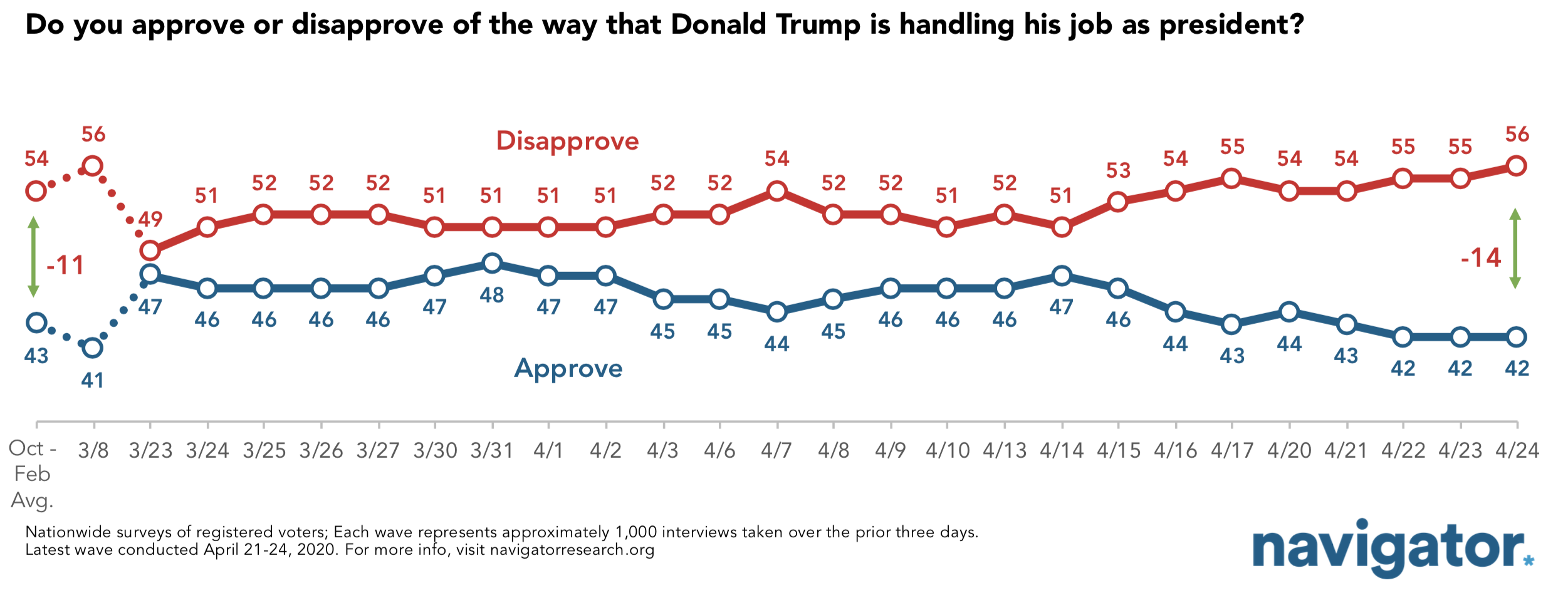
State and Local Government More Trusted Than Trump
The public continues to trust state and local government over President Trump and the federal government.
- America’s governors maintain high approval ratings on handling the coronavirus pandemic (69% approve/25% disapprove), while Trump remains underwater on handling the pandemic (44% approve/52% disapprove).
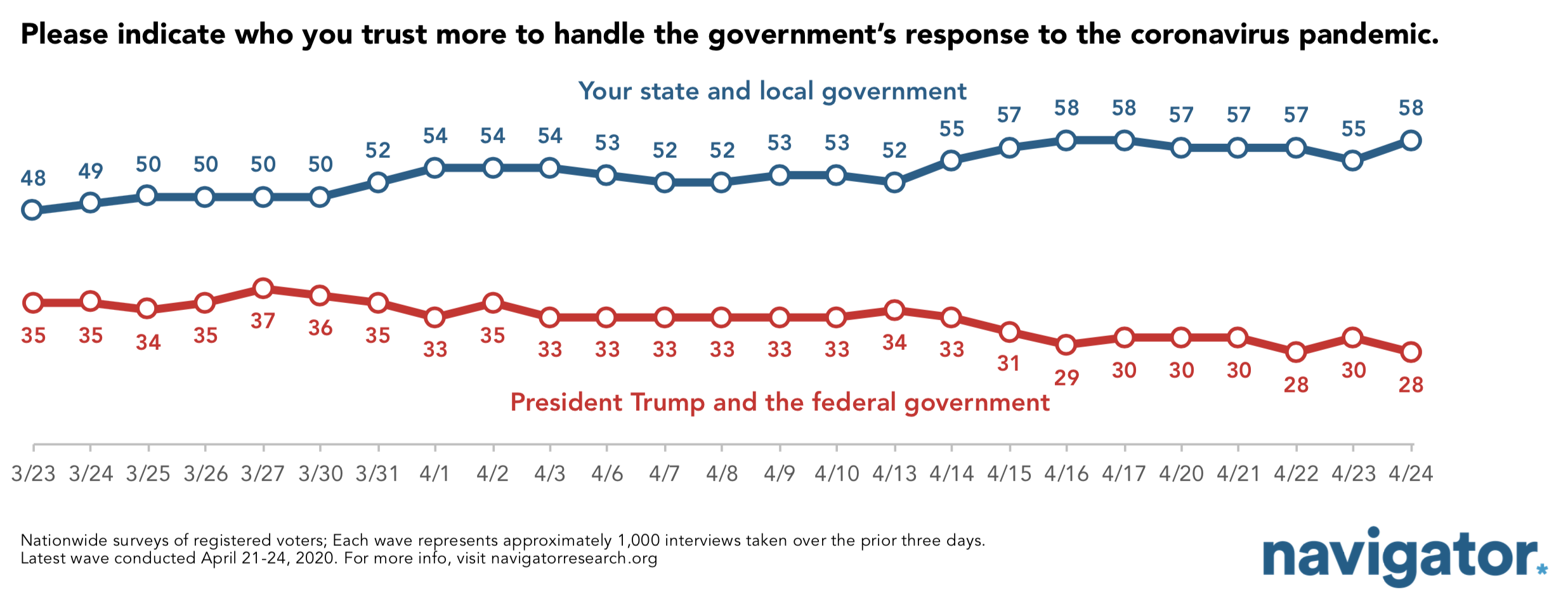
Democrats More Trusted on Issues Relating to Pandemic
Democrats in Congress hold a lead over President Trump on five metrics related to the coronavirus pandemic.
- On March 23rd, President Trump held a 6-point lead over Democrats in Congress on “responding to the coronavirus outbreak.” Now, Democrats hold a 3-point lead on the issue.
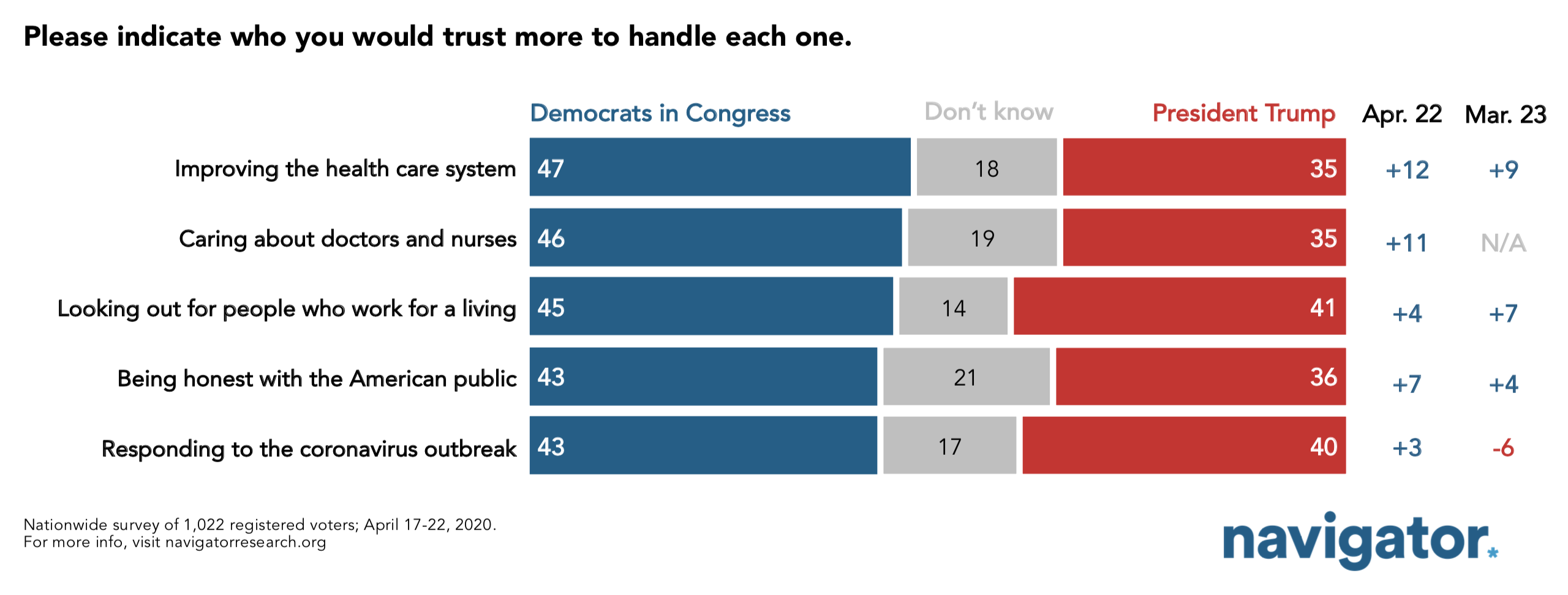
Most Americans Think the Worst is Not Over
Despite a decline since early April, the majority of Americans continue to believe that “the worst is yet to come.”
- Belief that “the worst is over” is largely being driven by Republicans. In our first week of tracking, on average, 16% of Republicans said the “worst is over,” compared to 11% overall. Last week, on average, 40% of Republicans said the “worst is over,” compared to 25% overall.
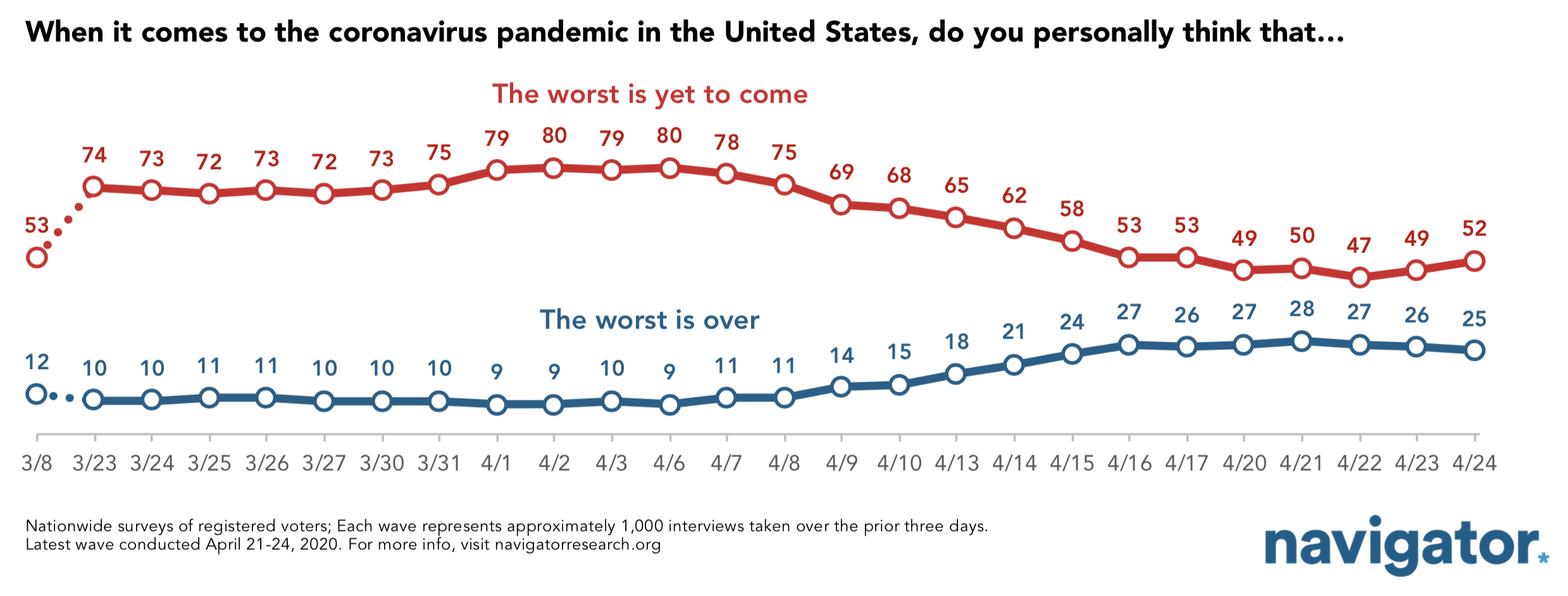
As Chatter of Reopening Increases, So Do Fears of Opening Too Soon
A growing majority of Americans say they are more concerned that social distancing will end too soon rather than go on too long.
- This includes a majority (57%) of independents and half of Republicans who say they are more concerned about social distancing ending too soon.
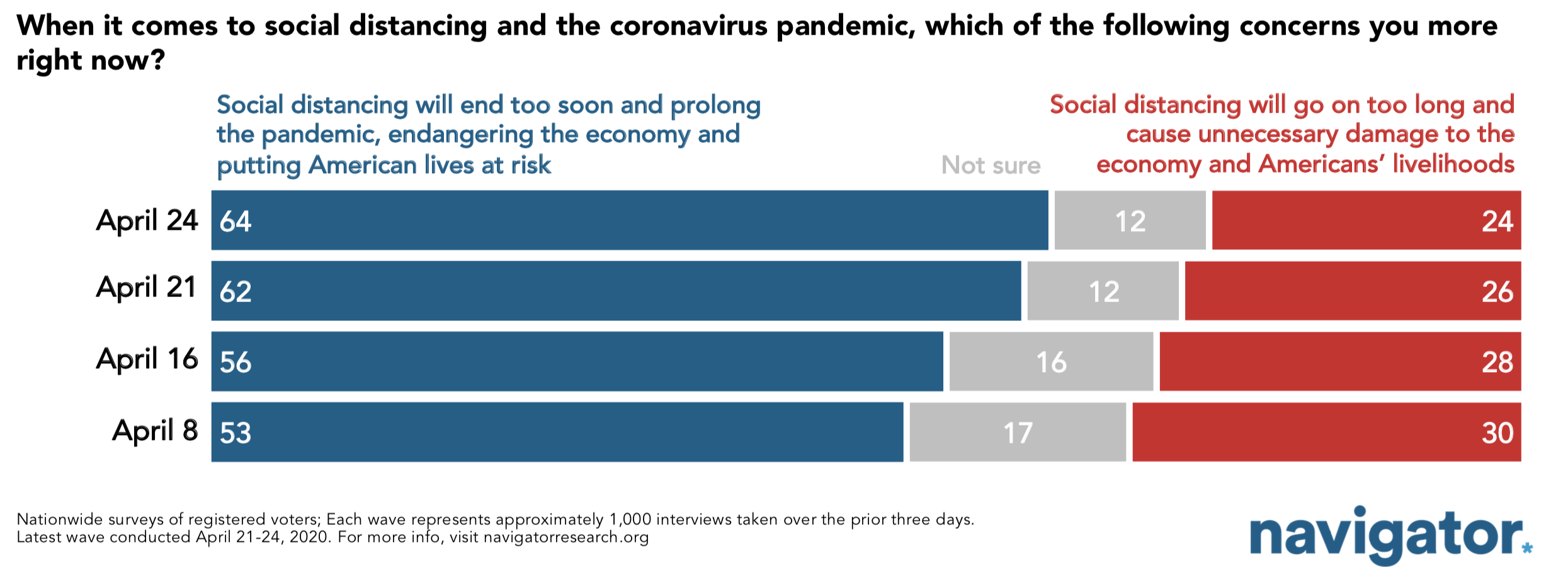
Infection and Recession Remain Top Worries
Someone close to them getting infected with coronavirus and the economy falling into a recession remain top worries for Americans.
- Worries about the “economy falling into a recession” have a reached a new high in our daily tracking at 85% “very” or “somewhat” worried.
- Westerners (93%) and Americans in rural areas (90%) are particularly worried about a recession.
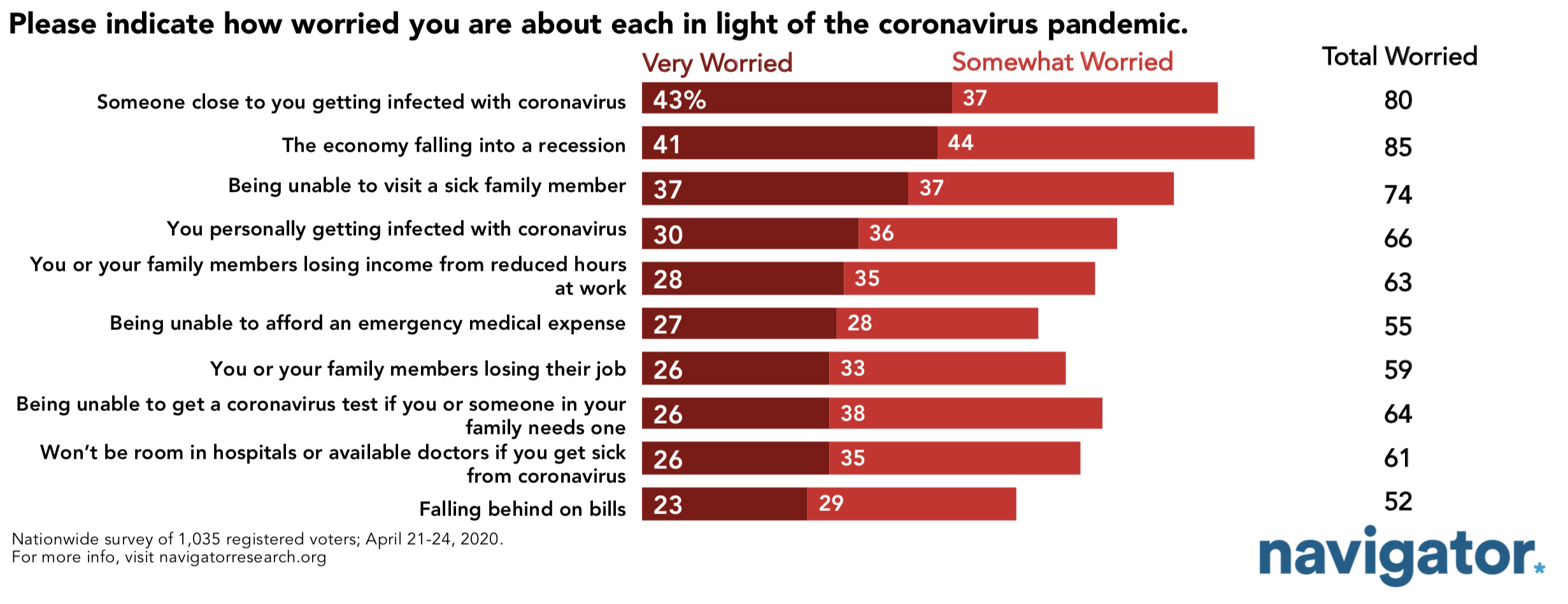
Self-Absorbed and Unprepared are Top Descriptors of Trump Response
When asked whether a series of words apply or don’t apply to Trump’s coronavirus response, every negative description rises above positive descriptions, with “self-absorbed” and “unprepared” topping the list.
- A majority of independents say that “self-absorbed” (60%) and “unprepared” (62%) apply to his response.
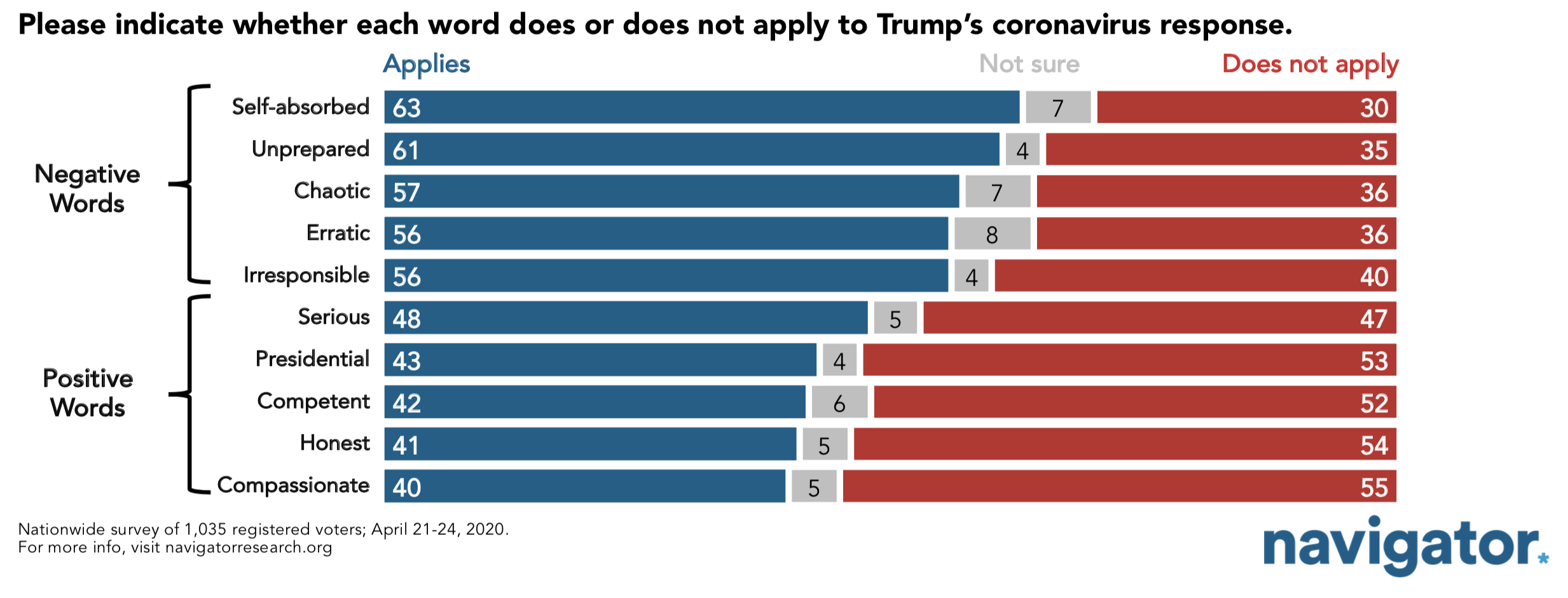
Comfort With Seeing Friends, Not Eating Out
By comparing what the public is currently doing and what they would do if the country reopens, we were able to determine that returning to work and interacting with friends or family have the smallest “holdouts.”
- “Holdouts” refers to a gap: these are things people are not doing today, and either because of safety consideration and/or lower interest, they are unlikely to get back to doing right away.
